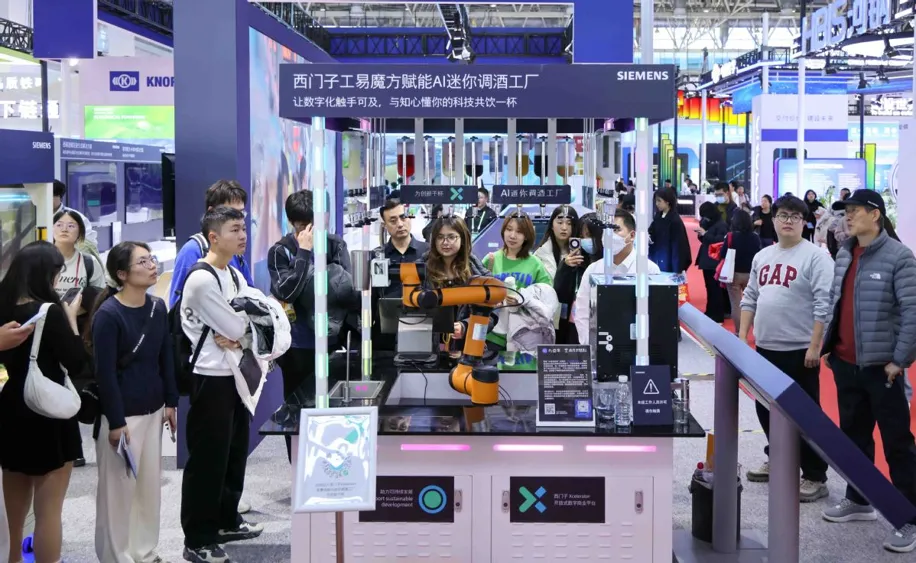Sino-German Collaboration Drives Significant AI Progress

Experts are emphasizing the importance of Sino-German collaboration in the realm of industrial artificial intelligence, as this partnership could significantly enhance manufacturing capabilities and bolster global competitiveness for both nations. As the second and third largest economies in the world, China and Germany have the potential to unlock considerable growth by working together.
The distinct strengths of each country's value chains and their differing approaches to engineering create a unique complementarity in the industrial AI sectors. Both economies share a focus on enhancing manufacturing and productivity, highlighting available opportunities for deeper collaborative efforts.
"If these two economies collaborate on data issues, algorithm issues and some of the ethical issues, I think that probably can move the adoption of AI industries forward," expressed Peter Koerte, a managing board member of Siemens AG, during an event hosted by Peking University.
Koerte pointed out that Germany boasts significant expertise in industries such as pharmaceuticals and electronics, while China excels in automotives, machinery, and construction. This recognition of complementary strengths sets the foundation for mutually beneficial cooperation.
"China is by no means just a manufacturing powerhouse. It is an innovation powerhouse," Koerte asserted. He emphasized the importance of openness in learning from each other's strengths without preconceived notions, which could lead to better outcomes for both economies.
The managing board member of Siemens also highlighted a key difference in engineering styles: German engineers prioritize precision and rigor, while their Chinese counterparts focus on speed and practicality, further underscoring the need for collaboration.
Liu Qiao, dean of Peking University's Guanghua School of Management, mirrored this sentiment at the same event, noting that both China and Germany are complementary regarding their positions within the value chain.
Currently, China is transitioning from downstream to upstream positions within value chains, whereas Germany maintains a strong presence in upstream sectors. Together, these two economies effectively cover the full spectrum of almost any manufacturing sector, paving the way for joint advancements in AI.
Liu cautioned that amid increasing geopolitical tensions and global trade uncertainties, promoting productivity growth is essential for sustainable economic progress in China. He emphasized that leveraging new technologies will play a crucial role in achieving this objective.
Liu, also a finance professor, noted that Germany likely shares similar goals, presenting a common ground for collaboration in technology-related endeavors.
When touching on AI-driven production capabilities, Koerte raised an important point regarding accessibility to industrial data, noting that currently, 80 percent of this data remains untapped. He argued that unlocking this data could reveal significant value, citing the battery manufacturing industry as an illustrative example.
By applying AI and data analytics throughout the 13 critical processes in battery production, Koerte suggested that product yield rates could soar from 60 percent to 90 percent, demonstrating the transformative potential of collaborative AI advancements.
Read These Next

Banking Sector Thrives as CCB and SPD Bank Reach Record Highs
China Construction Bank and SPD Bank stocks hit record highs, rising over 1%, while local banks rose more than 2%, signaling market optimism.

A Forward Look at Corporate Risk Management Strategies
Analysis of key business changes, financial trends, and potential risks depicted in a recent annual report, focusing on the company's management performance agreement and financial derivatives trading plan for 2025.

Moderna's flu vaccine shows promise for combo Covid shot
Moderna's flu vaccine has shown positive late-stage trial results, enhancing prospects for a combination Covid shot. This development is significant for public health and could reshape vaccination processes while offering financial potential for investors amidst evolving regulatory landscapes.
